Richard Vedder is Distinguished Professor of Economics Emeritus at Ohio University, a Senior Fellow at the Independent Institute, a Senior Fellow at Unleash Prosperity, and a board member of the National Association of Scholars. His latest book is Let Colleges Fail: The Power of Creative Destruction in Higher Education

In recent years, intercollegiate college athletics has become an expensive activity for many American colleges and universities. Even at 68 Power Five Conference schools whose teams generate significant football and basketball income, very few typically even claim to make a profit, and that is using accounting procedures that, if followed by Fortune 500 companies, would […]
Read More
Recent polling by College Pulse for the American Council of Trustees and Alumni (ACTA) reveals that college-aged Americans are abysmally ignorant of our rich historical heritage and knowledge of our most important civic institutions. An implication is that the colleges neglect to instruct students to remedy that scandalous deficiency. While that is no doubt correct, […]
Read More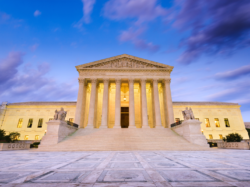
The Supreme Court’s recent Chevron ruling, while rightly focusing on central issues like presidential immunity, also brought a potential boon for American higher education. This decision, which I believe holds promise for the future, has yet to be fully grasped by the higher education establishment. Specifically, in Loper Bright Enterprises v. Raimondo, the Court invalidated […]
Read More
My friend, John Fund, a distinguished journalist and political commentator, has brought to my attention a fine study done by the Washington Monthly, showing that virulent anti-Israel and pro-Palestinian protests have occurred disproportionately at elite colleges where most students come from relatively rich families. You heard a lot about pro-Palestinian demonstrations, building occupation, and tent […]
Read More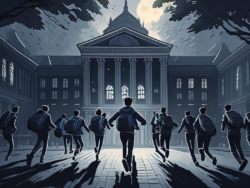
Men are increasingly an endangered species on American college campuses. Between 2015 and 2022, the National Center of Educational Statistics says male enrollment fell by 10.4 percent, while the decline of female enrollment was far less than one-half of that (4.4 percent). By the latter year, 38 percent more women were on campus than men. […]
Read More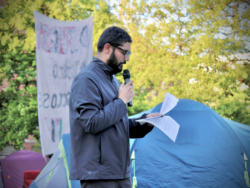
Editor’s Note: This article was originally published by The James G. Martin Center for Academic Renewal on May 22, 2024 and is crossposted here with permission. Clearly, the most newsworthy story in American collegiate life recently has been the widespread eruption of pro-Palestinian protests over the war between Israel and Hamas. A central demand of pro-Palestinian demonstrators has […]
Read More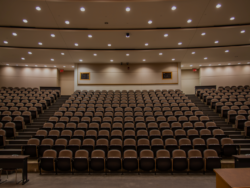
Bad pronouncements from fellow economists have historically caused lots of mischief, but there is something important on which most of them agree: people respond to positive incentives—money, material goods, power, even sexual attractions—and try to avoid negative incentives—losing large sums of money, freedom through imprisonment, etc. I have argued for decades that those incentive systems, […]
Read More
For years, I have been writing about the deficiencies of the federal student loan programs, but I thought diminishing returns were setting into my harangues—everything important had been said. But don’t underestimate the deleterious effects of disregarding the rule of law, the crassness of political ambitions, and the manifest stupidity of some of President Biden’s […]
Read More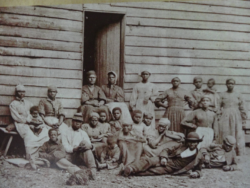
Author’s Note: The following is based on a more comprehensive paper titled “Slavery Revisited: Time on the Cross at 50,” published in the Spring 2024 edition of the Independent Review. Most serious works of scholars are respectfully evaluated by modest numbers of colleagues and occasionally play a small role in determining the prevailing interpretation of […]
Read More
If there is an annual event that most clearly demonstrates the importance of merit and skill on American college campuses, it is the March Madness surrounding the NCAA basketball championships. The public, whose support of higher education is sharply waning in light of increasing collegiate inanities, intensely roots for favorite schools and players. In higher […]
Read More
Throughout most of the nearly seven decades in which I have had an intimate association with American higher education, I have pondered the question: “Who really ‘owns’ the universities?” Several groups claim at least partial control on many campuses, hence the oft-cited term “shared governance.” But to avoid chaos, some specific individual or group has […]
Read More
We are approaching the beginning of the two most important months in athletics in a sports-crazed nation. Between now, approaching February 11’s Super Bowl—where even speculation about the appearance of one of the player’s girlfriend is generating huge attention—in Las Vegas and April 8’s National Collegiate Athletics Association (NCAA) Basketball Championship game in Phoenix, Americans […]
Read More
Like ancient Rome, American universities have not fallen or declined in a day—or even a year. But as good of a date as any to measure the beginning of the decline is 2011. Enrollments started falling that year and since then they have fallen by roughly 15 percent. The ratio of college students to the […]
Read More
As stated previously, if I were dictator for a day, I would empty the Maryland Avenue headquarters of the U.S. Department of Education (ED), have the Air Force bomb it out of existence, and after the Corps of Engineers removed the rubble, I would give the land to the Smithsonian Institution for an expansion of […]
Read More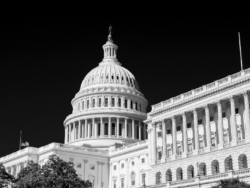
The reputation of American universities, already precariously low, hit a nadir with the testimony of the presidents of three iconic American universities, Harvard, Massachusetts Institute of Technology (MIT), and University of Pennsylvania (Penn) before the Committee on Education and Labor of the U.S. House of Representatives. Borrowing from Victor Davis Hanson, to these schools, the […]
Read More
It seems to me that Texas always likes to try to outdo everyone else—think of outsized political personalities like Lyndon B. Johnson. Maybe the state has something of an inferiority complex that it thought it could remedy by adroitly using its massive oil revenues. Two large direct beneficiaries of those revenues are the University of […]
Read More
For two centuries after the founding of Harvard College in 1636, there was grotesque gender discrimination in American colleges and universities: there were no female students. Even in 1950, there were far more than two men on American campuses for every woman. But by the late twentieth century female enrollment had surged, coinciding with the […]
Read More
Arguably, American universities in many ways resemble somewhat unruly and disrespectful adolescents—they want to be comfortably sustained by their adult parents/financiers, but their increasingly deplorable behavior needs firmer adult supervision. Hence “outsiders” are becoming assertive, be it major donors to elite private schools or politicians at schools importantly dependent on government subsidies, especially our state […]
Read More
In July, five college presidents resigned in a week—one for each workday. Some ran small to mid-sized eastern colleges and universities: Seton Hall University, Thomas Jefferson University, and the Berklee College of Music. Others led large research powerhouses: Stanford and Texas A&M universities. Only one, Marc Tessier-Lavigne of Stanford, had been in office for more […]
Read More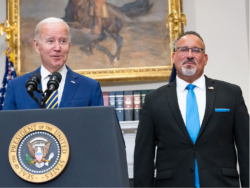
When the Supreme Court struck down the Biden administration’s plan for massive student loan forgiveness ($10,000 to $20,000 for 98% of borrowers), I said to friends, “Biden will sneak in most of what he wanted in other ways.” Specifically, I thought he would continue the extremely generous income-repayment scheme that he and Education Secretary Miguel […]
Read More
Picking up on the ideas of Karl Marx and German historian-economist Werner Sombart, Joseph Schumpeter, in his 1942 classic Capitalism, Socialism and Democracy, suggested that in a vibrant, private, competitive market economy, firms are constantly being created and destroyed. Businesses who miscalculate—those who fail to adequately meet the needs of their customers or utilize new, […]
Read More
College and university presidents, along with their often-compliant governing boards, have presided over a decline in academic freedom during the past decade, as so-called DEI (diversity, equity, and inclusion) bureaucracies have multiplied in size and power. Mandatory diversity statements, cancel culture, trigger warnings, and bias response teams evidence this decline. It has come with a […]
Read More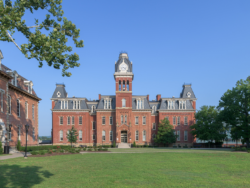
In my judgment, E. Gordon Gee is the dean of American university presidents. If you had visited West Virginia University (WVU) 40 years ago, Gee would have been president. The same is true if you visited today. But in the four-decade interval, Gordon also headed two other flagship state universities: the University of Colorado and […]
Read More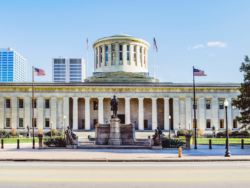
Some states are known for being innovative or expressive in outsized ways, with governmental policies that are often bold, and business entrepreneurship that is similarly spectacular in its magnitude. For example, among states with a liberal-progressive tradition, California is seldom dull and ordinary. Similarly, among states with a more conservative-libertarian orientation, Texas and Florida often […]
Read More
James Moore’s recent epistle in this space, “The Rise of the Pseudo Faculty,” has jolted my aging brain to suggest an economist’s view on why college and university faculty have lost clout in their institutions over time. But first, a little history. If you asked a professor on an American campus 100 years ago, “Are […]
Read More
Colleges and universities seem obsessed with race and other social “identities.” Diversity, equity, and inclusion (DEI) bureaucracies are often powerful on campus, and college staffs are sometimes required to swear fealty to “diversity” in order to secure and maintain employment. Yet polling data suggest a majority of the public opposes evaluating people at least partly […]
Read More
The United States has been considered a truly “exceptional” place because it excels in so many ways. It has the biggest output of goods and services. It has had the most powerful military presence on the planet for many years. Its technological advances have been the greatest of any nation. And, more relevant to this […]
Read More
I recently read in the Wall Street Journal that Stanford University had more administrative staff and faculty than it did students. Specifically, there were 15,750 administrators, 2,288 faculty members, and 16,937 students. The paid help of 18,038 (administrators plus faculty) outnumbered the customers (students) by 1,101. That gave me an idea for a stunning administrative […]
Read More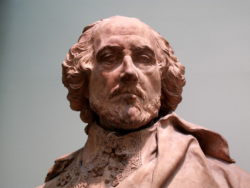
I always thought that William Shakespeare was a bit too harsh when, in Henry VI, Part 2, he said “Let’s kill all the lawyers.” Given the antics of our nation’s leading law schools and the American Bar Association (ABA), however, perhaps Shakespeare was onto something when he penned those words over four centuries ago. In […]
Read More
The latest brouhaha in higher education arose when New York University fired an organic chemistry professor teaching huge numbers of students, Maitland Jones, Jr. The headlines are revealing: “Top Med School Putting Wokeism Ahead of Giving America Good Doctors” proclaimed a column written by Dr. Stanley Goldfarb (former dean of the University of Pennsylvania School […]
Read More